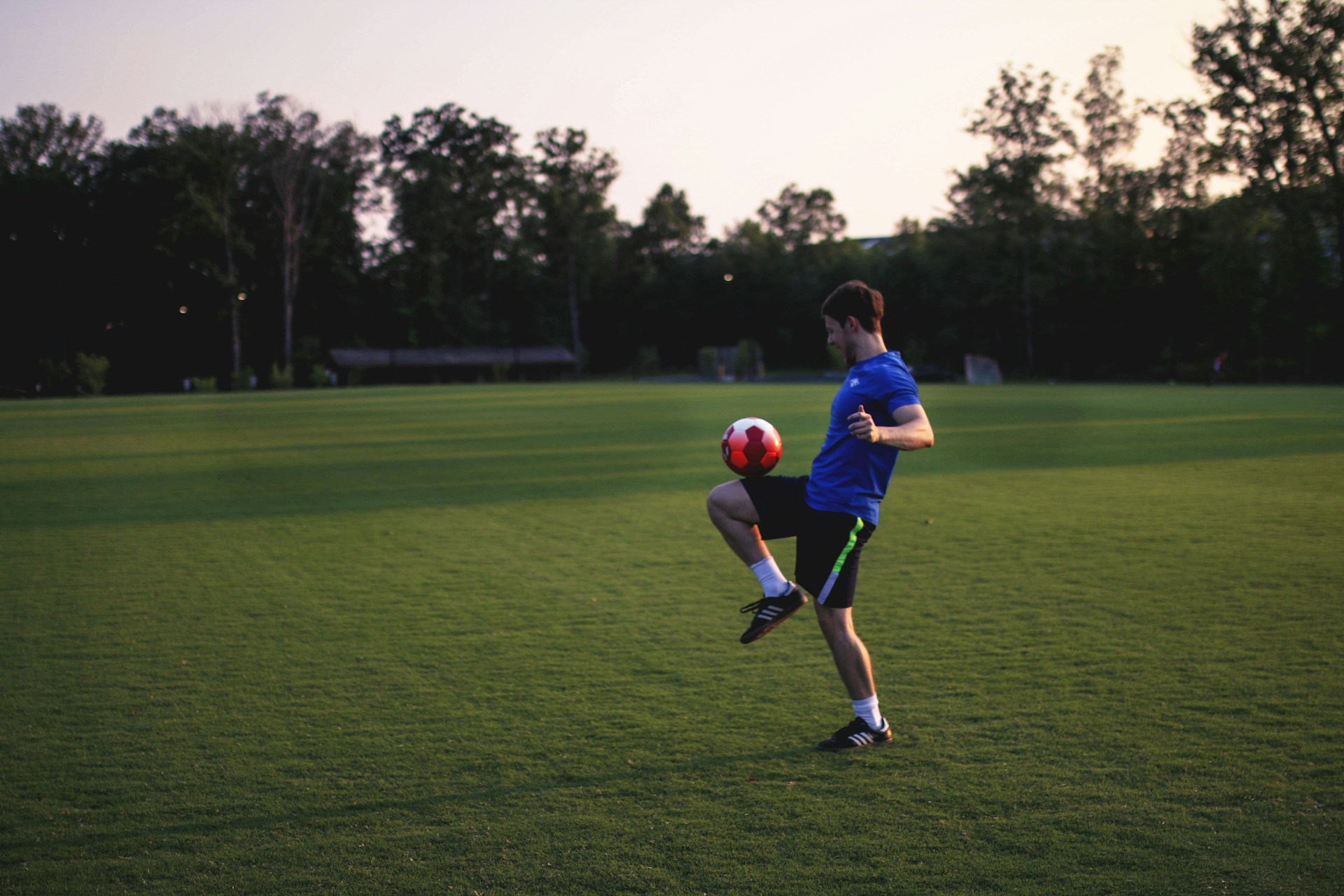Football is a group game that mainly requires teamwork and communication. But although you need to work with a team, you should also practise alone to improve your skills. That way when you practise with the team, you just do what your part requires.
When practising football alone, there are things you should keep in mind, especially since you have all the time alone, and there’s no need to consider other people’s time. You need to be disciplined, and creative, and make a plan to achieve your goals.
In this article, we’ll give you some essential tips on how to effectively practise football alone.
1. Set Your Goals
The first thing you should do when practising football alone is to set your goals. Set a major goal that you want to achieve in the long run, and also goals for each session.
For instance, if your main goal is to become a professional goalkeeper, then you should gradually improve a certain skill per session. Setting up your goals allows you to review them later, and see your progress. Additionally, you can include gifting yourself a few retro football shirts once you’ve achieved your goals.
2. Warm-Up Properly
Warming up properly is essential to prepare your body for the intense activities you’re about to do when practising playing football. First, you can do some stretching. After that, do a light jog around the area to increase your heart rate. After jogging, you can do some agility drills to prepare your muscles and avoid getting cramps.
Don’t forget to add warm-up at every beginning of your football practice, even if you’re practising alone.
3. Master the Basics
When practising as a team, the main focus would be the harmony of everyone’s football skills. Meanwhile, the good thing about practising alone is that you can master the basics of football. As you continue to do this, you can improve your overall performance once you practise with the team.
Focus on dribbling, ball control, and passing. When it comes to passing the ball, since you don’t have anyone to pass it on, you can set a goal so that you know whether you pass on the right spot or not.
4. Start with Dribbling Drills
As mentioned, dribbling should be one of the skills you should master. No matter your position in the team, you should know how to dribble well. Start by practising dribbling based on what your coach has taught you. The more you practise, the more you can discover techniques that you can use for various situations during the actual games.

5. Improve Your Shooting Accuracy
Shooting is another important skill any football player should know. Although goalkeepers may not need to prioritise this, they should still be able to learn how to shoot the ball.
When practising this skill, start with striking the ball right, even if you don’t have a target yet. As you practise, you can include shooting from different angles and distances.
6. Stay Fit
Fitness is one of the most crucial parts of being a football player. If you’re a fit person, you’ll be able to handle the extensive exercises. Besides, when you play football, you need to sprint, build endurance, and be flexible.
So aside from training, you should also include a couple of exercises that will help increase your strength and help you stay fit.
7. Work on Ball Control
Controlling the ball may seem easy, but it’s complicated. Once you know how to juggle and dribble, you can gradually shift to using your chest, head, and thighs. Practising is the best way to control the ball. However, you can feel more pressure when playing during the actual game, so try to be as quick as possible when you want to alternate the use of other body parts.
8. Analyse Your Performance
Aside from the actual practice, there are other things you should include, such as analysing your performance. If you can’t see any difference daily, try analysing your improvements weekly. It allows you to track your progress, and focus on the skills you need to improve.
If you can’t tell whether you’ve made progress or not, you can let your coach do it for you. You can either video yourself practising or show them a few tricks you’ve learnt for the week.

9. Keep It Fun
Practising alone can be a boring and repetitive task you need to do every time. However, if you don’t want to feel burnout, try creating variations, and keep things fun. For instance, you can make three ways on how you can practise football. If you think you’re not in the mood to do the first option, you can at least choose from the other two.
10. Stay Consistent
Regular training can be one of the toughest things to do, more than the drills and the training itself. Sometimes, you may feel as if you can’t start training, but once you do, you can get over it quickly.
In addition, try to think of ways you can still be able to practise even though your motivation is low. For instance, try bribing yourself to add an item to your current collection of retro football shirts once you have a solid month of training alone.
Final Thoughts
At the end of the day, the only thing that can keep you from becoming a professional football player is your motivation. If you’re not motivated enough to spend time working on your skills, you may not be able to play with others. By incorporating these tips, you can achieve better results when practising football alone.

